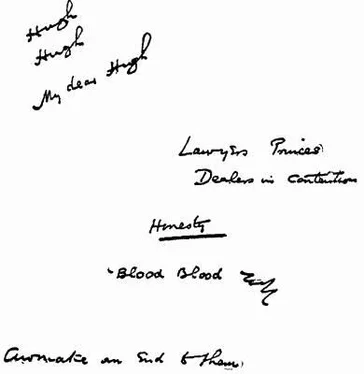Herbert Wells - Mr. Britling Sees It Through
Здесь есть возможность читать онлайн «Herbert Wells - Mr. Britling Sees It Through» весь текст электронной книги совершенно бесплатно (целиком полную версию без сокращений). В некоторых случаях можно слушать аудио, скачать через торрент в формате fb2 и присутствует краткое содержание. Жанр: Классическая проза, на английском языке. Описание произведения, (предисловие) а так же отзывы посетителей доступны на портале библиотеки ЛибКат.
- Название:Mr. Britling Sees It Through
- Автор:
- Жанр:
- Год:неизвестен
- ISBN:нет данных
- Рейтинг книги:4 / 5. Голосов: 1
-
Избранное:Добавить в избранное
- Отзывы:
-
Ваша оценка:
- 80
- 1
- 2
- 3
- 4
- 5
Mr. Britling Sees It Through: краткое содержание, описание и аннотация
Предлагаем к чтению аннотацию, описание, краткое содержание или предисловие (зависит от того, что написал сам автор книги «Mr. Britling Sees It Through»). Если вы не нашли необходимую информацию о книге — напишите в комментариях, мы постараемся отыскать её.
Mr. Britling Sees It Through — читать онлайн бесплатно полную книгу (весь текст) целиком
Ниже представлен текст книги, разбитый по страницам. Система сохранения места последней прочитанной страницы, позволяет с удобством читать онлайн бесплатно книгу «Mr. Britling Sees It Through», без необходимости каждый раз заново искать на чём Вы остановились. Поставьте закладку, и сможете в любой момент перейти на страницу, на которой закончили чтение.
Интервал:
Закладка:
"You see," said Mr. Britling, repeating a phrase that was becoming more and more essential to his thoughts, "this is our war....
"Of course," said Mr. Britling, "these things are not going to be done without a conflict. We aren't going to take hold of our country which we have neglected so long without a lot of internal friction. But in England we can make these readjustments without revolution. It is our strength....
"At present England is confused—but it's a healthy confusion. It's astir. We have more things to defeat than just Germany....
"These hosts of recruits—weary, uncared for, besieging the recruiting stations. It's symbolical.... Our tremendous reserves of will and manhood. Our almost incredible insufficiency of direction....
"Those people up there have no idea of the Will that surges up in England. They are timid little manoeuvring people, afraid of property, afraid of newspapers, afraid of trade-unions. They aren't leading us against the Germans; they are just being shoved against the Germans by necessity...."
From this Mr. Britling broke away into a fresh addition to his already large collection of contrasts between England and Germany. Germany was a nation which has been swallowed up and incorporated by an army and an administration; the Prussian military system had assimilated to itself the whole German life. It was a State in a state of repletion, a State that had swallowed all its people. Britain was not a State. It was an unincorporated people. The British army, the British War Office, and the British administration had assimilated nothing; they were little old partial things; the British nation lay outside them, beyond their understanding and tradition; a formless new thing, but a great thing; and now this British nation, this real nation, the "outsiders," had to take up arms. Suddenly all the underlying ideas of that outer, greater English life beyond politics, beyond the services, were challenged, its tolerant good humour, its freedom, and its irresponsibility. It was not simply English life that was threatened; it was all the latitudes of democracy, it was every liberal idea and every liberty. It was civilisation in danger. The uncharted liberal system had been taken by the throat; it had to "make good" or perish....
"I went up to London expecting to be told what to do. There is no one to tell any one what to do.... Much less is there any one to compel us what to do....
"There's a War Office like a college during a riot, with its doors and windows barred; there's a government like a cockle boat in an Atlantic gale....
"One feels the thing ought to have come upon us like the sound of a trumpet. Instead, until now, it has been like a great noise, that we just listened to, in the next house.... And now slowly the nation awakes. London is just like a dazed sleeper waking up out of a deep sleep to fire and danger, tumult and cries for help, near at hand. The streets give you exactly that effect. People are looking about and listening. One feels that at any moment, in a pause, in a silence, there may come, from far away, over the houses, faint and little, the boom of guns or the small outcries of little French or Belgian villages in agony...."
Such was the gist of Mr. Britling's discourse.
He did most of the table talk, and all that mattered. Teddy was an assenting voice, Hugh was silent and apparently a little inattentive, Mrs. Britling was thinking of the courses and the servants and the boys, and giving her husband only half an ear, Captain Carmine said little and seemed to be troubled by some disagreeable preoccupation. Now and then he would endorse or supplement the things Mr. Britling was saying. Thrice he remarked: "People still do not begin to understand."...
§ 4
It was only when they sat together in the barn court out of the way of Mrs. Britling and the children that Captain Carmine was able to explain his listless bearing and jaded appearance. He was suffering from a bad nervous shock. He had hardly taken over his command before one of his men had been killed—and killed in a manner that had left a scar upon his mind.
The man had been guarding a tunnel, and he had been knocked down by one train when crossing the line behind another. So it was that the bomb of Sarajevo killed its first victim in Essex. Captain Carmine had found the body. He had found the body in a cloudy moonlight; he had almost fallen over it; and his sensations and emotions had been eminently disagreeable. He had had to drag the body—it was very dreadfully mangled—off the permanent way, the damaged, almost severed head had twisted about very horribly in the uncertain light, and afterwards he had found his sleeves saturated with blood. He had not noted this at the time, and when he had discovered it he had been sick. He had thought the whole thing more horrible and hateful than any nightmare, but he had succeeded in behaving with a sufficient practicality to set an example to his men. Since this had happened he had not had an hour of dreamless sleep.
"One doesn't expect to be called upon like that," said Captain Carmine, "suddenly here in England.... When one is smoking after supper...."
Mr. Britling listened to this experience with distressed brows. All his talking and thinking became to him like the open page of a monthly magazine. Across it this bloody smear, this thing of red and black, was dragged....
§ 5
The smear was still bright red in Mr. Britling's thoughts when Teddy came to him.
"I must go," said Teddy, "I can't stop here any longer."
"Go where?"
"Into khaki. I've been thinking of it ever since the war began. Do you remember what you said when we were bullying off at hockey on Bank Holiday—the day before war was declared?"
Mr. Britling had forgotten completely; he made an effort. "What did I say?"
"You said, 'What the devil are we doing at this hockey? We ought to be drilling or shooting against those confounded Germans!' ... I've never forgotten it.... I ought to have done it before. I've been a scout-master. In a little while they will want officers. In London, I'm told, there are a lot of officers' training corps putting men through the work as quickly as possible.... If I could go...."
"What does Letty think?" said Mr. Britling after a pause. This was right, of course—the only right thing—and yet he was surprised.
"She says if you'd let her try to do my work for a time...."
"She wants you to go?"
"Of course she does," said Teddy. "She wouldn't like me to be a shirker.... But I can't unless you help."
"I'm quite ready to do that," said Mr. Britling. "But somehow I didn't think it of you. I hadn't somehow thought of you —"
"What did you think of me?" asked Teddy.
"It's bringing the war home to us.... Of course you ought to go—if you want to go."
He reflected. It was odd to find Teddy in this mood, strung up and serious and businesslike. He felt that in the past he had done Teddy injustice; this young man wasn't as trivial as he had thought him....
They fell to discussing ways and means; there might have to be a loan for Teddy's outfit, if he did presently secure a commission. And there were one or two other little matters.... Mr. Britling dismissed a ridiculous fancy that he was paying to send Teddy away to something that neither that young man nor Letty understood properly....
The next day Teddy vanished Londonward on his bicycle. He was going to lodge in London in order to be near his training. He was zealous. Never before had Teddy been zealous. Mrs. Teddy came to the Dower House for the correspondence, trying not to look self-conscious and important.
Two Mondays later a very bright-eyed, excited little boy came running to Mr. Britling, who was smoking after lunch in the rose garden. "Daddy!" squealed the small boy. "Teddy! In khaki!"
Читать дальшеИнтервал:
Закладка:
Похожие книги на «Mr. Britling Sees It Through»
Представляем Вашему вниманию похожие книги на «Mr. Britling Sees It Through» списком для выбора. Мы отобрали схожую по названию и смыслу литературу в надежде предоставить читателям больше вариантов отыскать новые, интересные, ещё непрочитанные произведения.
Обсуждение, отзывы о книге «Mr. Britling Sees It Through» и просто собственные мнения читателей. Оставьте ваши комментарии, напишите, что Вы думаете о произведении, его смысле или главных героях. Укажите что конкретно понравилось, а что нет, и почему Вы так считаете.






